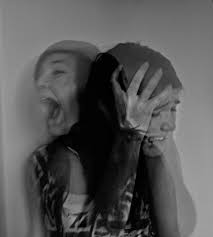Standing Up for the Other 350 Million People, Just Like Me.
I have a mental illness.
You’re judging me already aren’t you?
You must be thinking “she’s crazy, she cries herself to sleep at night, she’s ‘different.’” Right?
I have depression. It’s okay, I’m not ashamed of it. It is part of me, part of my brain and part of who I am. And although it is part of who I am, it does not define me. But it does in the eyes of society because people have so many misconceptions about mental illnesses
I am not a psycho, by far. I do not have to take heaps of pills in the morning to function “correctly.” I’m just a girl, who has gone through a lot, and on top of that, have a single neuron that’s a bit distorted in my brain; me, and 350 million others in the world. And 1 out of 5 Americans.
Depression is an illness; yes an illness, that although people cannot see, is just as serious as any other medical condition.
Depression is defined as: the feeling of sadness for weeks or months on end that often comes with feelings of hopelessness, little or no energy, not taking part in activities, and facing everyday life as an obstacle. Depression can also be life threatening. Many people suffer from suicidal thoughts that haunt them each and every day.
Depression can be scary. Sometimes I scare myself; I ask myself, “why am I like this?” Or I wonder if there is something wrong with me. But there is nothing wrong with me. Sometimes I just think differently or get upset, and that is okay.
There are many different mental illnesses that are categorized as a form of “depression,” or go hand in hand with it. These illnesses include anxiety, bipolar disorder, body dysmorphic disorder, eating disorders and dysthymic disorder.
I have major depressive disorder, anxiety and body dysmorphic disorder. My depression causes me to be in a constant stream of sadness, I barely eat, or overeat, I barely sleep, I have thoughts about death and I act out. My body dysmorphic disorder causes me to see my body as larger than it is and have unrealistic expectations of what I should look like, an issue I am still working on now.
There are two different kinds of depression; one is exogenous, short-term depression that is typically caused by loss or trauma. The other is endogenous: life-long depression usually caused by childhood trauma or abuse, neglect, criticism, family conflict, addiction, or poverty.
I have life-long depression. Not only has my childhood shaped me to be this way, it’s also in my genes to be somehow mentally “wrong” in the eyes of the public. My grandmother suffers from schizophrenia and bipolar disorder, and my grandfather suffers from severe addiction and depression. So I am destined to be “different?” I can’t change my future right? Wrong.
I take medicine to help stable my emotions, celexa to be exact. I go to therapy and group meetings to cope with issues I keep buried inside myself. Many people will ask me why I write about this, why does anyone need to know? And no one needs to know. But why be ashamed of an aspect of myself? Something that is as common as a cold, yet people are too scared to tell others about.
So I guess that’s why I am writing this, to tell others there is no reason to be ashamed for who you are, or any baggage you carry along with you. It makes us different; unique.
There are many mental illnesses, besides depression, that have stigmas surrounding them or that people are ashamed of admitting they have. Here or some statistics to show there are more people with mental health disorders than we think:
Alcohol Abuse: An inappropriate pattern of drinking that typically results in: failure to fulfill work, school or personal life. One with alcoholism typically becomes violent and angry. (45 million people suffer from this disease.)
Anorexia Nervosa: An emotional disorder that is an obsession in the desire to become unhealthily thin. People with this disorder attempt to eat as little as possible. (20 million women and 10 million men suffer from this disorder)
Anxiety: Feelings of worry, nervousness or unease that follows with compulsive behaviors or panic attacks. (40 million people have anxiety.)
Binge Eating Disorder: Compulsive overeating in which people consume huge amounts of food and feel powerless or unable to stop. (20 million people suffer from this disorder)
Bipolar Disorder: An illness that causes shifts in mood, activity levels, and energy, than starts with extreme feelings of happiness followed by extreme feelings of sadness. (254 million people suffer from this disorder)
Body Dysmorphic Disorder: A psychological disorder in which a person becomes obsessed with imaginary defects in their appearance and body. (14 million people suffer from this disorder)
Borderline Personality Disorder: A disorder in which a person has unstable and turbulent emotions in which they switch from one persona to another. (6 million people suffer from this disease)
Bulimia Nervosa: an emotional disorder which involves distorted body image and an obsessive desire to lose weight, in which extreme overeating occurs and is followed by depression and self-induced vomiting, purging, or fasting.( 24 million people suffer from this disorder.)
Mood Disorder: A psychological disorder characterized by the elevation or lowering of a person’s mood, such as depression or bipolar disorder. (40 million people have mood disorders)
Obsessive Compulsive Disorder: An anxiety disorder in which a person has repeated thoughts, feelings, ideas, sensations or behaviors that make them feel drive to do something. (60 million people suffer from this disorder.)
Panic Disorder: A psychiatric disorder in which debilitating anxiety and fear arise frequently and without reason. (18 million people suffer from this disorder)
Posttraumatic Stress Disorder: An anxiety disorder that occurs after someone has gone through extreme emotional trauma that typically involved threat of injury or death. (31.3 million suffer from this disease.)
Schizophrenia: A loss of contact with reality that usually includes: false beliefs about what is taking place or who someone is; seeing or hearing things that aren’t there (51 million people worldwide)
So, do not be afraid to say who you are, or issues that come with being YOU. It is nothing to be ashamed of.
(Did not include all mental disorders there are much, much more)





